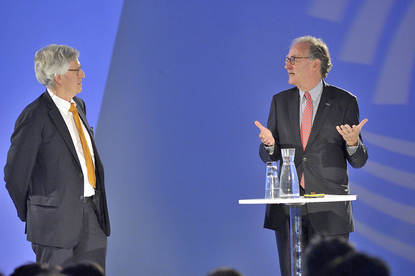Public interaction
The subject of medicines continued to receive a lot of attention from patients, the media and politics in 2016. The MEB had intensive contact with the pharmacists, healthcare providers and patient organisations affected by the sudden shortage of the thyroid medicine Thyrax. The MEB worked together with the National Health Care Report Centre (LMZ) for the first time. The LMZ received and answered many questions from the public about the shortage.
In order to take patients’ interests into account when making decisions, the MEB regularly involves physicians, pharmacists and patients. The MEB regularly consulted with the organisations concerned with regard to the possible decrease in efficacy of the Sandoz product salbutamol and with the suspension of antimalaria medicines.
The MEB provides the latest information on medicines in the Netherlands and Europe via the MEB website and the Medicines Information Bank. The MEB strives to make these channels as user-friendly as possible. Therefore the MEB regularly conducts usability surveys to ask users about their experiences.
MEB Day 2016: Science and Europe
The theme for MEB Day 2016 was: ‘Science and Europe’. The day was focused on the significance of regulations and scientific innovation in Europe for Dutch patients, physicians, veterinarians and pharmacists. Over 400 interested persons visited MEB Day.
Chairman of the National Science Agenda Alexander Rinnooy-Kan described how horizontal cooperation can lead to better solutions for societal challenges.
Noël Wathion, Deputy Executive Director of the European Medicines Agency (EMA), talked about the changing role of medicines regulatory authorities. Whereas they previously focused mainly on marketing authorisation, they now also contribute to timely access to medicines. In addition, medicines regulatory authorities are becoming increasingly transparent, which makes it easier to understand the rationale of an assessment.


MEB Consultation with Patient and Consumer Organisations
The MEB Consultation with Patient and Consumer Organisations, in which various patient and consumer organisations are represented, meets several times a year to exchange knowledge and experiences and to learn from one another. During these meetings in 2016, some of the topics discussed aside from current topics included:
- Registry studies
- Substitution with regard to generic medicinal products
- How to reach patients with safety and other information on medicinal products
- Shortages/availability of medicinal products
- Educational material about e.g. generics
- Input from patient organisations when preparing regulatory guidelines
- Adverse events week campaign
Medical Practice Committee
The Medical Practice Committee is a focus group for doctors and pharmacists, other professional groups and the MEB, examining practical and policy aspects of medicines. In 2016, matters were considered including:
- The possibility of multiple strengths under a single RVG number
- The policy concerning expiry dates of OTC medicines after opening
- The possibility of putting multilingual packaging on the market
- Medicine shortages
- Usefulness of ampoules in clinical practice
CCR
In the Contact Committee on Authorisation (CCR), there is a dialogue between the MEB and representatives from the pharmaceutical industry. It mostly concerns current developments and the policy on authorisation procedures. In 2016, some of the topics discussed in the CCR included:
- Medicine shortages
- Structuring the EU presidency
- The compassionate use programme
- The potential consequences of Brexit
- The public consultations are also discussed in the CCR.
In 2016 the following policy documents were drawn up or revised, published for public consultation and then approved:
- Policy document on national implementation of additional risk minimisation measures
- MEB publication policy on patented indications
- Proposed Dutch translation and inclusion of ‘child-resistant’ in product information
- Proposed inclusion of expiry date after opening on the packaging of OTC medicines
- Policy document on informed consent in application procedure
- Policy document on assessment criteria for combination packages
